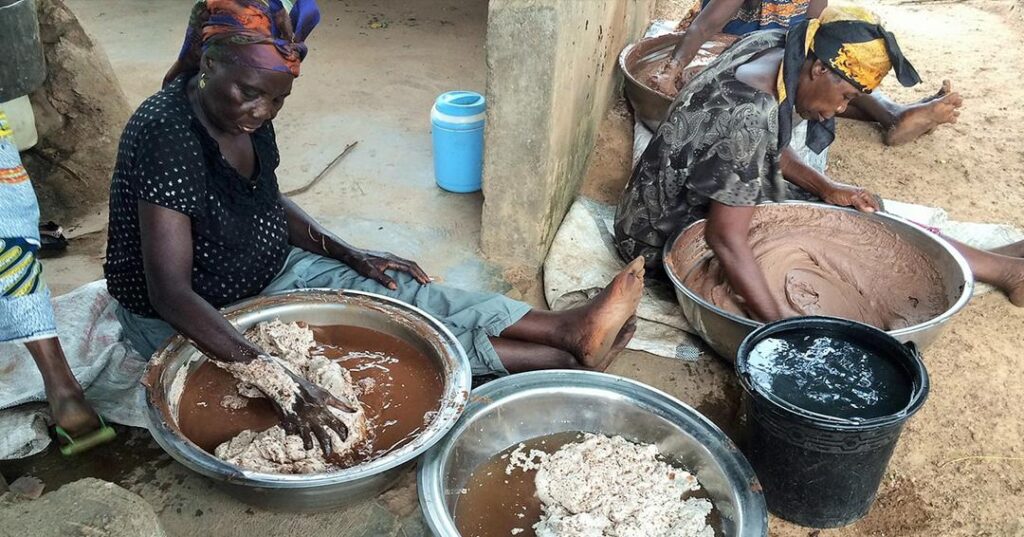In a significant policy shift, the Malian government has announced the suspension of exports for critical agricultural products, including shea nuts, groundnuts, soybeans, and sesame. This decision, set forth through an interministerial decree on October 3, 2024, aims to increase the value of Mali’s agricultural resources by encouraging local processing, fostering industrial development, and driving sustainable economic growth.
The decree, signed by the Ministers of Economy and Finance and of Industry and Trade, specifies that commodities seized from those violating the export ban will be redirected to Malian industries for domestic processing. This policy seeks to reduce the outflow of raw materials, bolster industrial capacity, create local jobs, and enhance economic diversification within Mali. Although the export suspension is effective immediately, the government has not yet disclosed how long it will remain in place.
Mali, a prominent producer of shea nuts, has traditionally exported most of its raw kernels to European markets. Despite an annual groundnut yield of approximately 700,000 tons, local processing has remained limited, providing only modest economic gains due to low returns and unpredictable market prices. While soybean production has shown steady growth, the local processing infrastructure is still developing, underscoring the importance of the government’s latest move.
This decision also mirrors a regional shift in agricultural policy, following Burkina Faso’s September 18, 2024, suspension of shea kernel exports. Both countries’ actions highlight a growing commitment within West Africa to retain and process valuable resources domestically, leveraging agricultural products to fuel industrialization and strengthen their economies.
By limiting exports, Mali aims to capture more of the agricultural value chain, thereby supporting the development of local industries and promoting long-term economic resilience. The government’s move is anticipated to be a pivotal step toward Mali’s economic self-sufficiency and a stronger position within the regional agricultural market.
Source: APA News – Bamako: AC/sf/lb/as/APA


